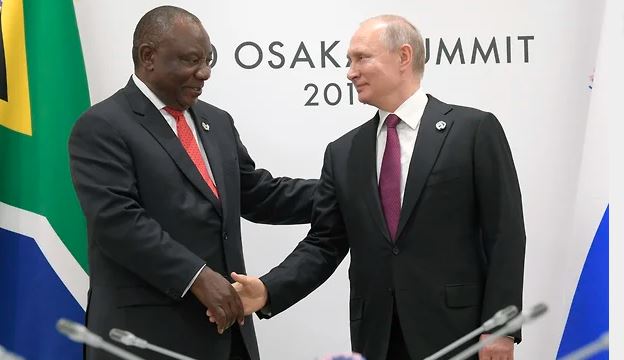Russia is buying African loyalty with trains and schools, Ukrainian intelligence says

Ukraine’s Defense Intelligence Directorate (HUR) reported on 22 June that Russia is systematically deploying educational and infrastructure projects in Burkina Faso, Ghana, South Africa, and Egypt to entrench its political control under the pretense of development aid. These “soft power” operations involve Russian state corporations RZD and Rosatom, and are described by HUR as a destabilizing strategy masked as humanitarian engagement.
State rail company RZD expands reach across four African nations
According to HUR, the Kremlin-controlled railway giant RZD or Russian Railways is planning projects in Burkina Faso, Ghana, and South Africa. In May, RZD approved a strategic concept for expanding its humanitarian presence abroad through 2030.
The plan reportedly includes opening Russian-language schools and specialized lyceums (a type of secondary school with a focus on specialized or advanced studies, – Ed.), as well as offering scholarships to bring foreign students to Russian universities.
Joint university in South Africa part of broader loyalty-building effort
Another major initiative involves establishing a joint university in South Africa with Russian cooperation. The goal, according to HUR, is to attract students from across the African continent, indoctrinating them with pro-Kremlin narratives and forging long-term loyalty among future regional elites.
Russia invests in African education and cultural events to shape long-term pro-Moscow influence
Rosatom drives ideological control through nuclear-linked education
The Russian state nuclear corporation Rosatom is also advancing plans targeting Egypt and the broader region. While it focuses on training nuclear power plant personnel, Rosatom’s scope extends further—toward building a loyal technological elite.
Ukraine’s intelligence notes that part of the plan includes creating a national education system aligned with Russian interests. Notably, the Kremlin is exploring the establishment of Russian university branches near nuclear sites in Egypt’s Alexandria, to facilitate long-term influence and personnel pipelines.
From India to Egypt: Leak reveals scope of sanctioned JSC Russian Helicopters’ international network
Andrii Yusov, a representative of Ukraine’s military intelligence, warned of the Kremlin’s true motives:
“Russian influence on Africa through infrastructure projects is a destabilizing factor, which under the cover of development aid leads to dependence on Moscow. Russians use this approach on a global scale.”